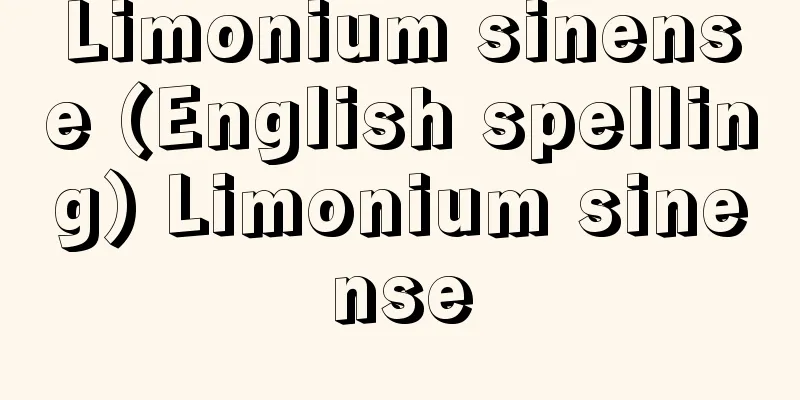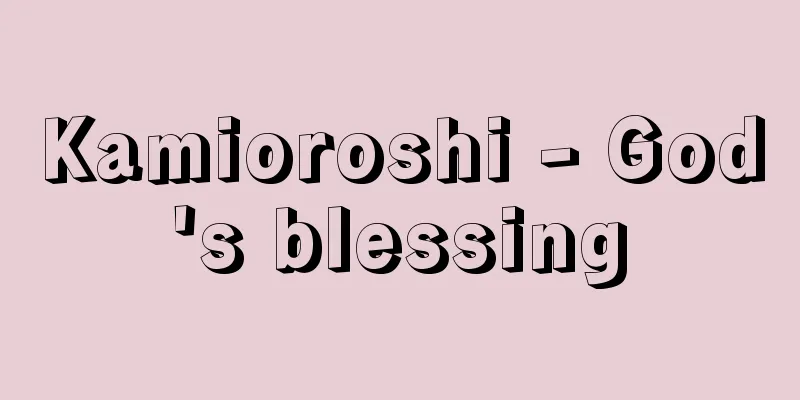Prison for Negligence - Katairou

|
〘Noun〙 A type of punishment in the Edo period. Imprisonment in lieu of the original punishment in order to atone for a crime. In the old days, it was imposed on buyers or witnesses who violated the prohibition on the permanent sale of farmland, but in the Imperial Decree, it was imposed on children and women who committed crimes equivalent to beatings . *Kinryo Ko - Goshu, Volume 4, Volume 36, September 1789 (Kansei 1) "Those who are punished by tattooing will be imprisoned for 100 days in addition to the tattooing." Source: The Selected Edition of the Japanese Language Dictionary About the Selected Edition of the Japanese Language Dictionary Information |
|
〘名〙 江戸時代の刑罰の一つ。罪を償うために本刑にかえて入牢させること。古くは、田畑永代売買の禁令を犯した買い主、または証人などに科せられたが、御定書では、幼年者、女が敲(たたき)に当たる罪を犯した時に科せられた。※禁令考‐後集・第四・巻三六・寛政元年(1789)九月「入墨重敲に相当り候ものは、入墨之上百日過怠牢申付」
出典 精選版 日本国語大辞典精選版 日本国語大辞典について 情報 |
Recommend
A short essay from Oi
Basho's haiku travelogue. He left Edo in Octo...
Invasion needle - Clamp
…The method of fishing in rivers is the same as t...
Sveinsson, A.
...However, in terms of visual arts, not many not...
Senba
This commercial area covers the northwestern part...
areola mammal
…The breast is an organ that secretes milk to nou...
Blacksmith - Kajiya
A craftsman who forges metal. Also called a black...
Allyl (English spelling)
A monovalent unsaturated hydrocarbon group represe...
Rudolf von Jhering
A leading German legal scholar in the late 19th c...
Crassostrea angulata (English spelling)
…[Hiroshi Aramata]. … *Some of the terminology th...
Aplysia dactylomela (English spelling)
…[Tadashige Nabe]. . … *Some of the terminology t...
Aretas IV (English spelling)
…The Nabataeans were a branch of nomadic Arabs or...
Battle of Azankur - Battle of Azankur
…Four years after he began his rule (1392), he we...
Mount Mitake - Mitsuminesan
A mountain located in the Otaki area of Chichib...
intarsia
…There are two techniques. One is called intarsia...
Okoze (English spelling) devilfish
Refers mainly to marine fish belonging to the fami...









